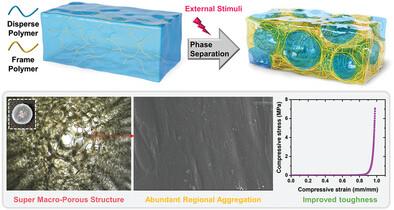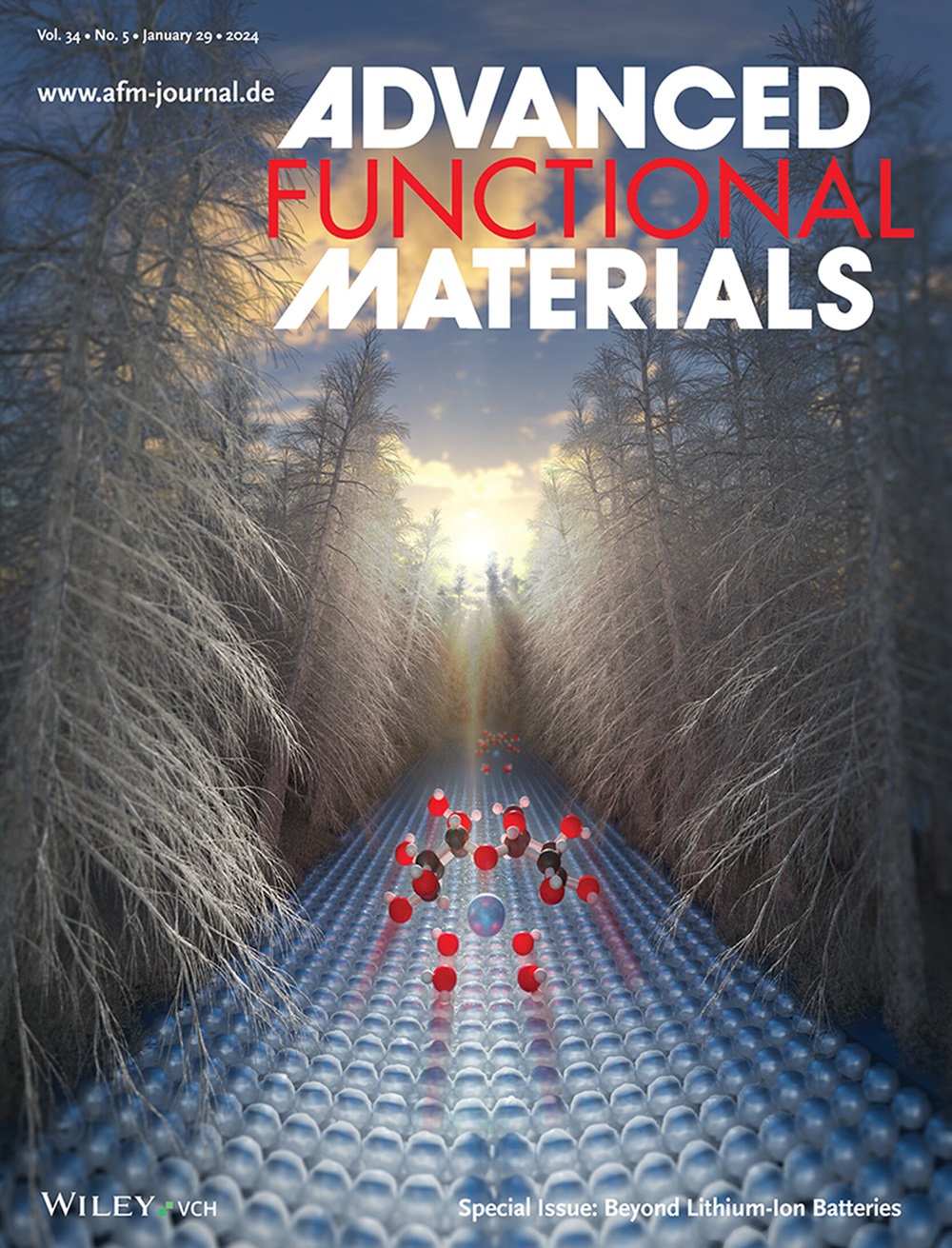Facile Fabrication of Tough Super Macroporous Hydrogel via Enhanced Phase Separation
IF 18.5
1区 材料科学
Q1 CHEMISTRY, MULTIDISCIPLINARY
引用次数: 0
Abstract
Super macroporous (SMP) hydrogels have garnered significant attention in biomedical applications due to their high permeability and biomimetic pore structure. However, maintaining toughness in highly porous materials remains a formidable challenge. This study introduces a facile one-step preparation method for fabricating tough alginate hydrogels with an SMP structure by blending polyvinyl alcohol (PVA) and sodium alginate cross-linked with calcium chloride. By capitalizing on the phase separation effect, this method bypasses traditional requirements such as cryogelation and templating that necessitate low temperatures or solvent etching. The presence of PVA molecules promotes the regional aggregation of alginates, leading to enhanced toughness, and also occupies larger interstitial spaces between the densely packed alginate phases, facilitating pore formation. The resulting SMP structure, featuring pore sizes ranging from 50 µm to 700 µm, forms during the polymer cross-linking process and achieves a porosity exceeding 85%. These hydrogels exhibit superior toughness compare to their non-macroporous counterparts. Additionally, this method allows for flexible adjustments in the porous structure and overall gel shape, making it adaptable to various applications. This simple yet effective approach holds great potential for developing novel SMP materials with enhanced toughness.

通过增强相分离轻松制造坚韧的超大孔水凝胶
超大孔(SMP)水凝胶具有高渗透性和仿生物孔结构,因此在生物医学应用中备受关注。然而,在高多孔材料中保持韧性仍然是一项艰巨的挑战。本研究通过混合聚乙烯醇(PVA)和氯化钙交联的海藻酸钠,介绍了一种一步制备具有 SMP 结构的韧性海藻酸钠水凝胶的简便方法。通过利用相分离效应,这种方法绕过了传统的低温凝胶化和模板化等需要低温或溶剂蚀刻的要求。PVA 分子的存在促进了海藻酸盐的区域聚集,从而提高了韧性,同时也占据了密集排列的海藻酸盐相之间更大的间隙,有利于孔隙的形成。在聚合物交联过程中形成的 SMP 结构具有 50 微米到 700 微米不等的孔径,孔隙率超过 85%。与无孔的水凝胶相比,这些水凝胶具有更高的韧性。此外,这种方法还能灵活调整多孔结构和凝胶的整体形状,使其适用于各种应用。这种简单而有效的方法在开发具有更高韧性的新型 SMP 材料方面具有巨大潜力。
本文章由计算机程序翻译,如有差异,请以英文原文为准。
求助全文
约1分钟内获得全文
求助全文
来源期刊

Advanced Functional Materials
工程技术-材料科学:综合
CiteScore
29.50
自引率
4.20%
发文量
2086
审稿时长
2.1 months
期刊介绍:
Firmly established as a top-tier materials science journal, Advanced Functional Materials reports breakthrough research in all aspects of materials science, including nanotechnology, chemistry, physics, and biology every week.
Advanced Functional Materials is known for its rapid and fair peer review, quality content, and high impact, making it the first choice of the international materials science community.
 求助内容:
求助内容: 应助结果提醒方式:
应助结果提醒方式:


